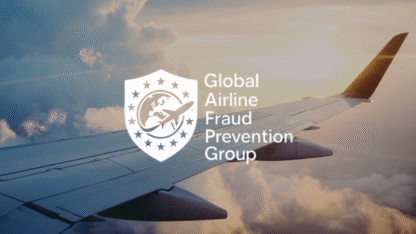Who Is OFAC?
The OFAC is the Office of Foreign Assets Control. It is the United States’ regulatory authority responsible for sanctions, including economic sanctions and trade sanctions. As such, its work covers sanctioned entities based on the foreign policy of the United States.
All US citizens are required to comply with OFAC regulations, including those who live outside the US. All persons living in the US and all other US entities are obligated to comply, including their international branches.
In departmental terms, the OFAC operates under the remit of the Office of Terrorism and Financial Intelligence, which is part of the US Treasury Department.
What Does OFAC Do?
The OFAC administers and enforces the US’s sanctions programs. Such sanctions are designed to change the behavior of those being sanctioned. Actions can include freezing assets (also known as blocking assets), placing controls on transactions, and imposing trade restrictions. The OFAC also has the power to prevent individuals and entities from operating within the US.
The OFAC can apply sanctions to individuals, to groups, to organizations, and to entire countries. OFAC’s 50 percent rule means that sanctions also apply to any company of which a sanctioned entity, such as a sanctioned individual, possesses 50% or more of the ownership. The OFAC identifies those it has sanctioned in its publicly available Specially Designated Nationals List and the Consolidated Sanctions List.
The OFAC’s work also targets specific industries within sanctioned countries in order to manage the impact of its sanctions on the global economy. These are known as sectoral sanctions. Targeting is largely directed by the OFAC’s Office of Global Targeting, alongside direction from the White House.
The OFAC’s work targets those carrying out particular activities, including activities relating to:
- terrorism
- narcotics trafficking
- weapons of mass destruction
- threats to the US’s national security
Economic reasons and foreign policy decisions can also inform the work that the OFAC carries out.
There is some overlap between the work of the OFAC and the matters addressed in the EU by the 6th Anti-Money Laundering Directive (6AMLD). Both pieces of legislation place obligations on businesses operating within their territory. In the US, the OFAC regulations are accompanied by a best practice framework for businesses to follow to ensure compliance.
This provides businesses with the guidance they need to avoid fines – which can run to millions of dollars – and other legal and reputational repercussions that can result from non-compliance.
Are you in a sector mandated by law to be AML compliant? Discover our impartial reviews of efficient and useful software.
Read More
Why Was the OFAC Set Up?
The OFAC (at the time called the Division of Foreign Assets Control) was set up in 1950 in direct response to the People’s Republic of China joining the Korean War. The US President at the time, Harry S Truman, declared a national emergency as a result.
He also blocked all North Korean and all Chinese assets that were subject to US jurisdiction. The department came under the remit of the Office of International Finance, operating in accordance with the Trading with the Enemy Act. It was renamed the Office of Foreign Assets Control in 1962.
History of OFAC
While the OFAC’s direct roots can be traced back to President Truman’s actions in the 1950s, the US Treasury Department had already been enforcing sanctions for over a century at that point. Back before the War of 1812, the Treasury Department imposed sanctions on Great Britain for its treatment of American sailors. Later, during the Civil War (1861 to 1865), prohibited transactions were introduced against the Confederacy, alongside licensing procedures for exceptional cases. From there, via the Office of Foreign Funds Control (established in 1940 at the beginning of World War II), the OFAC evolved.
How OFAC Counters Terrorist Financing
The OFAC plays an important role in countering terrorist financing in the US by blocking the assets of those deemed to be involved in funding terrorism. That can include the solicitation, collection, and/or provision of funds to terrorist groups and of course for acts of terrorism itself. Such activities are classed as terrorist financing irrespective of whether the funds in question were obtained legally or illegally.
The most recently published Terrorist Assets Report from the OFAC states that, as of 31st December 2020, some $63 million worth of assets were blocked as a result of its work. A further $140.76 million in funds, as well as property assets, were blocked in relation to state sponsors of terrorism.
What Are OFAC Licenses?
OFAC licenses are licenses which permit certain, clearly specified transactions and activities to be carried out with sanctioned entities. The OFAC issues both general licenses and specific licenses. It issues specific licenses on a case-by-case basis, following a detailed application process.
When the given license holder holds a general or specific license, they are permitted to carry out transactions and activities that the OFAC’s regulations would otherwise prohibit. The nature of what is permitted varies from license to license, but are often in relation to “tip-off” policies, where the liable organization should continue business as usual in order to not inform the sanctioned individual that they have been discovered.







